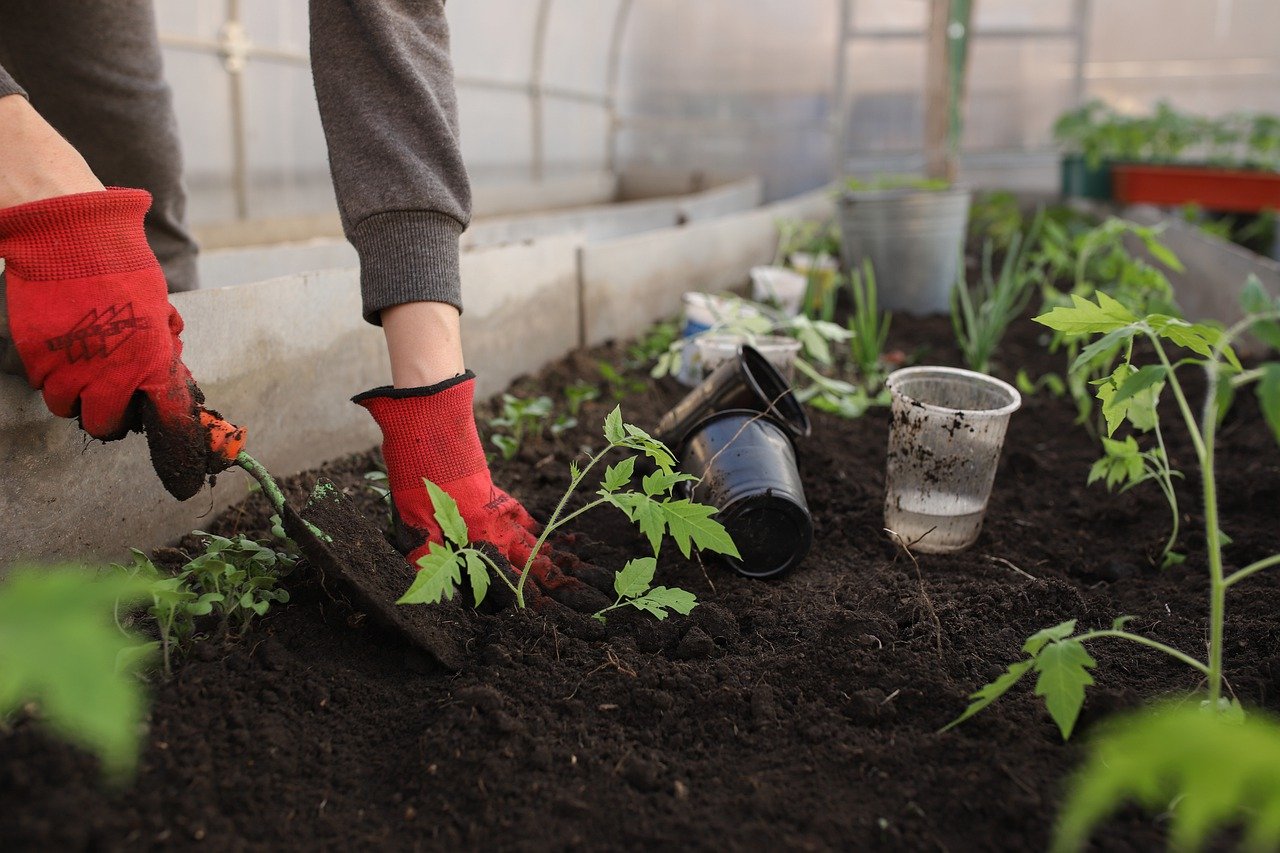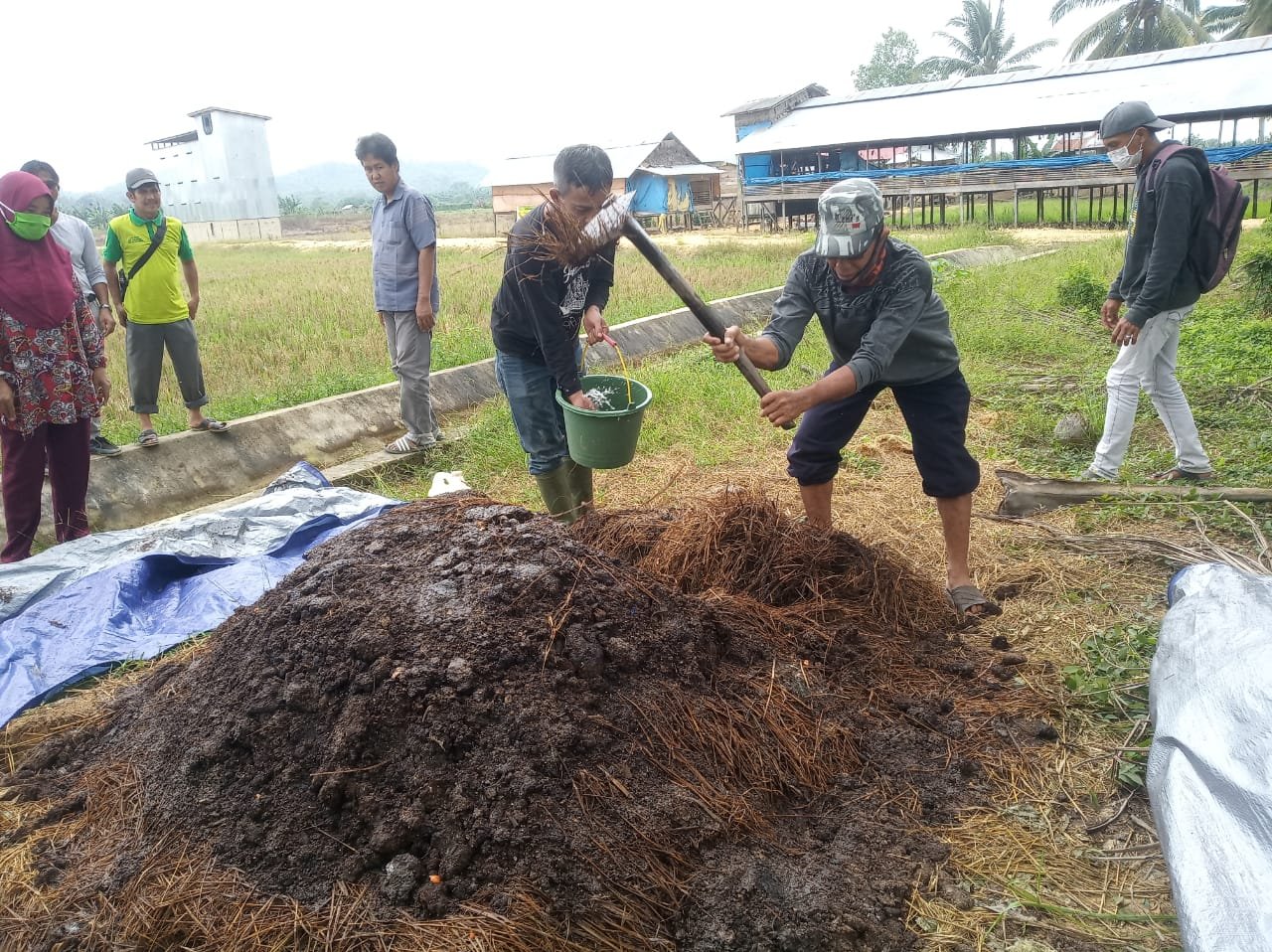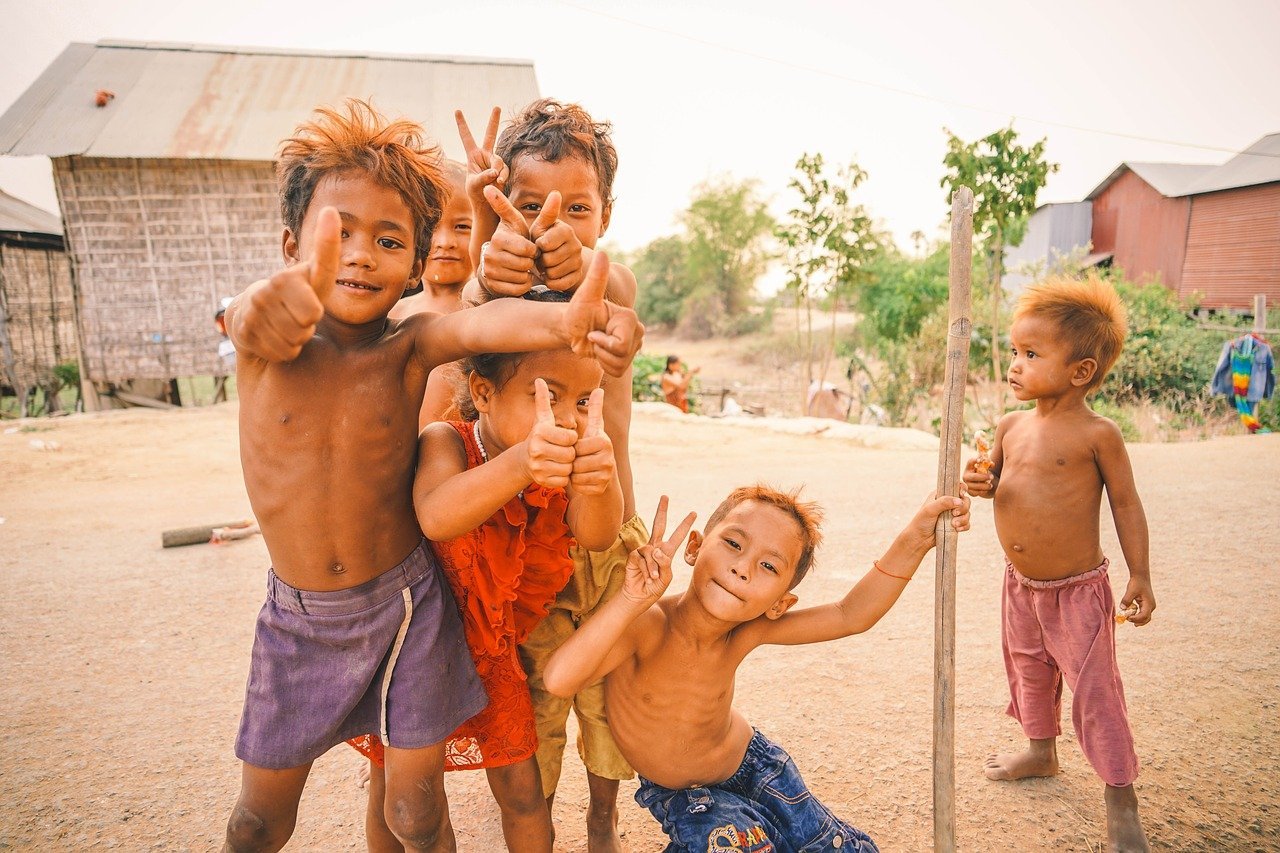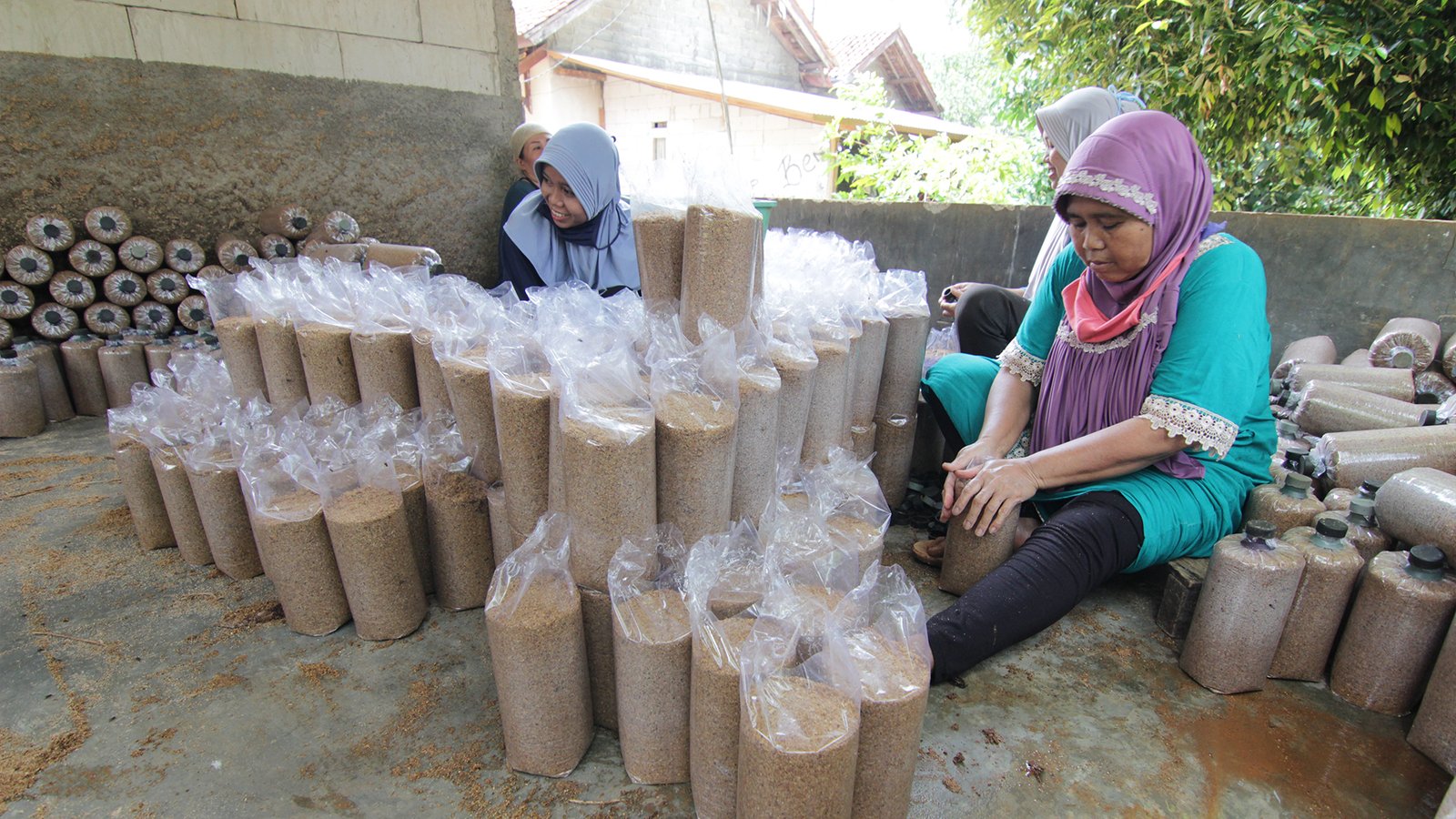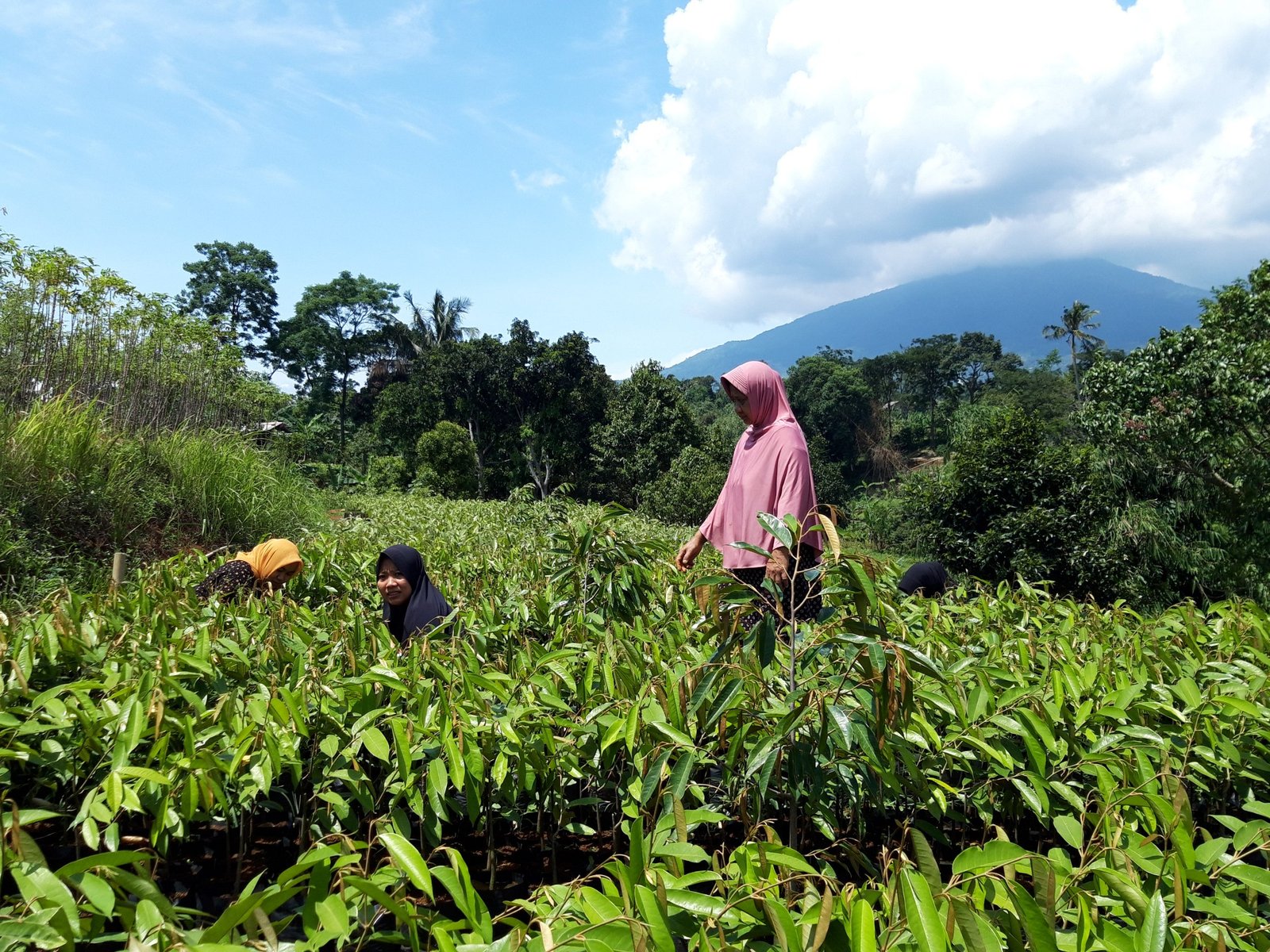Sustainable Development Goals (SDGs) is a global action plan agreed by nearly 200 world leaders, including Indonesia, to end poverty, reduce inequality and protect the environment. The SDGs contain 17 Goals and 169 Targets that are expected to be achieved by 2030.
Related to national development goals and plans, SDGs also emphasize the principle of ‘No One Left Behind’ which is inclusive by involving community organizations, academics, experts, philanthropy, business actors, and the media.
Chairman of the Board of Bina Swadaya Foundation, Bayu Krisnamurthi when opening the public discussion of Wisma Hijau Talk (BBWH), Thursday (21/1), said, the Founder of Bina Swadaya Foundation, Bambang Ismawan always emphasized that the big tree of the Unitary State of the Republic of Indonesia stands firmly on the roots of villages in Indonesia.
“If we want Indonesia to achieve SDGs, then indeed one of the most important strategies is to start from the village,” he said.
According to him, Village SDGs can be a form of breakthrough in realizing villages without poverty and hunger with equitable economic growth.
Therefore, Bina Swadaya supports efforts to realize the village’s SDGs. This is also in line with the vision of the founder of the Bina Swadaya Foundation that the Unitary State of the Republic of Indonesia will progress if the village as the ‘root of life’ of the Republic of Indonesia becomes independent, advanced, and sustainable.

Meanwhile, on the same occasion, the Minister of Village Development of Disadvantaged Regions and Transmigration (Mendes PDTT) Abdul Halim Iskandar believes that the concept of Sustainable Village SDGs can help accelerate the handling of development and various problems in the village.
According to him, Village SDGs are a measure of utilizing the use of village funds to achieve the development expected by the village.
“Village can be one of the concepts that change the development paradigm, from abstract to concrete, from conceptual to measurable, and from macro to micro,” said the man familiarly called Gus Minister.
Furthermore, the Minister said that Village SDGs must cover all aspects of development whose benefits are felt by rural communities without being missed. “No one left behind,” he insisted.
Kemendes PDTT presents the Village SDGs policy which contains 18 goals to be achieved. The 18 goals of achievement of the Village SDGs include villages without poverty, villages with No hunger, healthy and prosperous villages, quality village education, women’s involvement villages, villages worthy of clean water and sanitation, clean and renewable energy villages, evenly distributed village economic growth, and village infrastructure and innovation as needed.
Furthermore, villages without gaps, village residential areas that are safe and comfortable, consumption and production of environmentally conscious villages, climate change response villages, marine environment care villages, terrestrial environment care villages, equitable peace villages, partnerships for village development, as well as dynamic village institutions and adaptive village culture
The rationale for the emergence of the 18th SDGs is to appreciate the existence of a very diverse Indonesian nation, culture, language, customs, and others. In addition, accommodating the local wisdom of the community and productive village institutions to survive, and even develop.
“That is the concept of Village SDGs for 74,961 villages. It takes seriousness, and focus, the data is micro, the detailed problems are known, then make solutions, are solved by the village itself, assisted by the district, by the province, by the central government, I believe there will be an extraordinary acceleration of handling various problems in the village. And, it will be the success of national development,” Abdul Halim Iskandar added.
On the same occasion, Bambang Ismawan revealed, Bina Swadaya as a social entrepreneur, or an institution that organizes social development with entrepreneurship as a solution. Social development is activities related to poverty reduction, job creation, and development, and working on it collaboratively. This is a reflection of Bina Swadaya’s long journey.
“Bina Swadaya initiated and started the Village Revitalization Movement. The movements we carry out from below, mobilize and encourage people to participate in the development process with independent institutions and financial systems. This is a good opportunity for a more advanced, independent, and sustainable Indonesia,” explained Bambang.
For information, other speakers in the Wisma Hijau Public Discussion with the topic ‘Realizing the Achievement of Village SDGs’ included the Head of Kepuh Village, Limpung District, Batang Regency, Achmad Mubarok; Head of IPB University Agribusiness Data and Technology Center, Dr. Suprehatin; and Vice Chairman of the Bina Swadaya Foundation who is also the Coordinator of the Village Revitalization Movement (GRD) DE Susapto.

